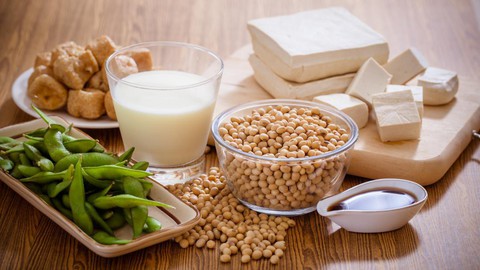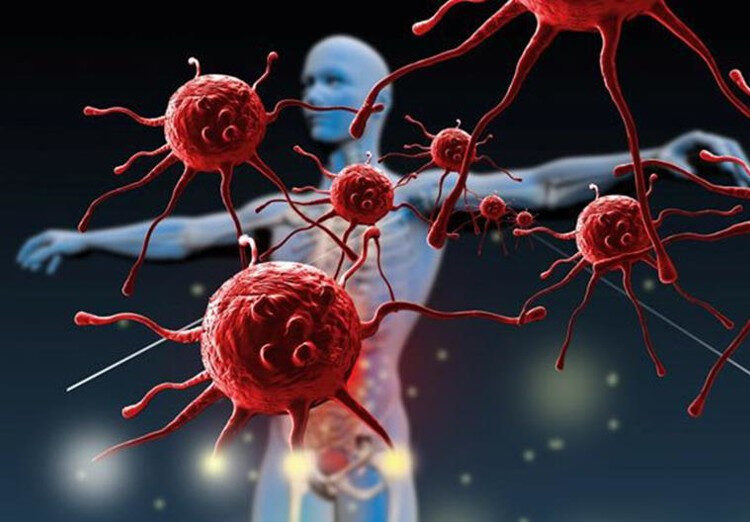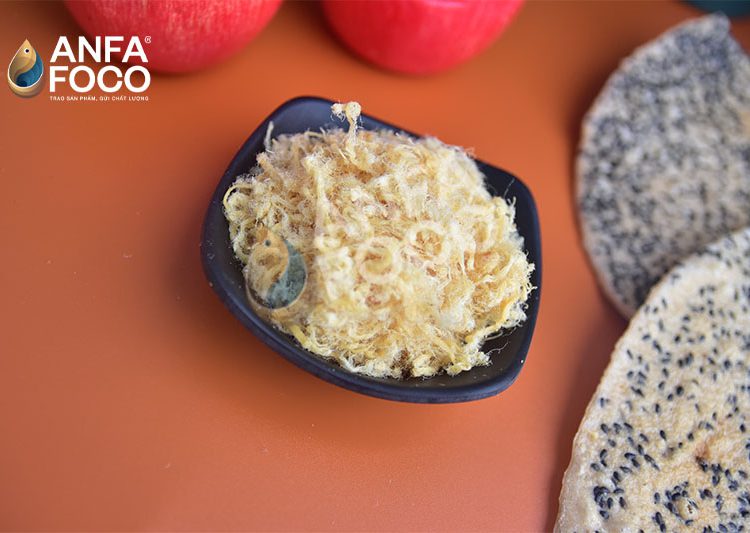The Nutritional Powerhouse: Unveiling the Amazing Benefits of Soybeans
1. Introduction
Soybeans, also known as soya beans, have been a dietary cornerstone in East Asian cultures for centuries. Once primarily consumed in these regions, their remarkable nutritional profile and versatility have propelled them into global prominence as a valuable source of plant-based nutrients. From tofu and tempeh to soy milk and edamame, soybeans offer a wide array of culinary possibilities and, more importantly, a wealth of health-promoting compounds. This essay will delve into the amazing nutrients found in soybeans, exploring their impressive nutritional composition, the numerous health benefits they offer, the diverse ways they can be incorporated into our diets, and addressing some common misconceptions surrounding their consumption.
2. The Impressive Nutritional Profile of Soybeans

Soybeans boast an exceptional nutritional profile, making them a true nutritional powerhouse. They are a complete protein source, meaning they contain all nine essential amino acids that the human body cannot produce on its own. This makes them 1 a particularly valuable protein source for vegetarians and vegans. Beyond protein, soybeans are rich in both soluble and insoluble fiber, which plays a crucial role in digestive health, helps regulate blood sugar levels, and contributes to feelings of fullness, potentially aiding in weight management. They are also a good source of healthy fats, primarily polyunsaturated and monounsaturated fats, including beneficial omega-3 and omega-6 fatty acids, which are important for heart health and brain function.In terms of micronutrients, soybeans are packed with essential vitamins and minerals. They are a good source of various B vitamins, including folate (important for cell growth and development), thiamin, riboflavin, and niacin, which play vital roles in energy metabolism. Soybeans also provide vitamin K, essential for blood clotting and bone health. Their mineral content is equally impressive, with significant amounts of iron (crucial for oxygen transport), calcium (important for bone health), magnesium (involved in numerous bodily functions), phosphorus (essential for bone and energy production), potassium (important for blood pressure regulation), and zinc (vital for immune function and wound healing).
Furthermore, soybeans are rich in beneficial phytochemicals, particularly isoflavones such as genistein, daidzein, and glycitein. These compounds are naturally occurring plant estrogens that have been linked to various health benefits, which will be explored further in this essay.
Related articles 01:
1. https://anfafoco.com/quy-trinh-lam-cha-bong-ca-loc-anfafoco/
2. https://anfafoco.com/cha-bong-gion-gia-si-mua-o-dau-tot-nhat/
3. https://anfafoco.com/2440-2/
4. https://anfafoco.com/da-ca-say-gion-mua-o-dau-chat-luong/
5. https://anfafoco.com/cung-cap-san-pham-lam-gio-qua-tet-dep-gia-re/
3. Key Health Benefits of Incorporating Soybeans into Your Diet

The rich nutritional profile of soybeans translates into a wide range of potential health benefits:
- Heart Health: Studies have shown that incorporating soy into the diet can positively impact heart health. Soy protein has been linked to lowering levels of LDL (“bad”) cholesterol while potentially increasing HDL (“good”) cholesterol. The presence of fiber and healthy fats in soybeans also contributes to cardiovascular well-being by helping to regulate blood pressure and reduce the risk of heart disease.
- Bone Health: Soybeans may play a role in maintaining bone density, particularly in postmenopausal women. The isoflavones in soy are thought to have estrogen-like effects that can help prevent bone loss, potentially reducing the risk of osteoporosis.
- Cancer Prevention: Research suggests that the isoflavones in soybeans may have a protective effect against certain types of cancer, including breast and prostate cancer. While more research is ongoing, studies have indicated that soy consumption may help inhibit the growth of cancer cells and reduce the risk of tumor development.
- Menopause Symptoms: For women experiencing menopause, the isoflavones in soy can act as phytoestrogens, potentially helping to alleviate symptoms such as hot flashes and night sweats. These compounds can bind to estrogen receptors in the body, mimicking some of the effects of natural estrogen.
- Weight Management: The high protein and fiber content of soybeans can contribute to feelings of satiety, helping to control appetite and potentially aiding in weight management. Incorporating soy into meals can help individuals feel fuller for longer, reducing overall calorie intake.
- Diabetes Management: Some studies suggest that soybeans may have a positive impact on blood sugar control and insulin sensitivity, potentially benefiting individuals with or at risk of developing type 2 diabetes. The fiber and protein content can help regulate glucose levels.
4. Versatile Ways to Consume Soybeans

One of the great advantages of soybeans is their versatility in the kitchen. They can be consumed in various forms, making it easy to incorporate them into a balanced diet:
- Whole Soybeans: Edamame, which are young, green soybeans still in their pods, are a popular and nutritious snack. Roasted soybeans offer a crunchy and protein-rich alternative.
- Soy Milk: A plant-based milk alternative made by soaking and grinding soybeans, soy milk is often fortified with calcium and vitamin D, making it a nutritious dairy-free option.
- Tofu: Made by curdling soy milk and pressing the curds, tofu is a versatile and widely used soy product that can be prepared in countless ways, from stir-frying to grilling to blending into smoothies. It comes in various textures, from silken to extra-firm.
- Tempeh: A fermented soybean product with a firm texture and nutty flavor, tempeh is often used as a meat substitute in vegetarian and vegan dishes.
- Miso: A fermented soybean paste with a savory and umami-rich flavor, miso is a staple in Japanese cuisine and is commonly used in soups, marinades, and seasonings.
- Soy Sauce: A traditional condiment made from fermented soybeans, wheat, salt, and water, soy sauce adds a distinct savory flavor to many dishes.
- Soybean Oil: A widely used vegetable oil extracted from soybeans, soybean oil is a versatile option for cooking and baking.
- Soy Flour and Protein Powder: These processed soy products can be used in baking to add protein and moisture, or as a convenient way to boost protein intake in smoothies and shakes.
5. Addressing Common Misconceptions About Soybeans

Related articles 02:
1. https://anfafoco.com/da-ca-say-gion-anfafoco-chinh-phuc-z-cafe/
2. https://anfafoco.com/da-ca-trung-muoi-nen-mua-o-dau-gia-re/
3. https://anfafoco.com/2454-2/
4. https://anfafoco.com/chuyen-cung-cap-cha-bong-khong-duong-gia-si/
5. https://anfafoco.com/da-ca-trung-muoi-khong-chi-o-singapore/
Despite the numerous health benefits, soybeans have been subject to some common misconceptions:
- Soy and Breast Cancer: Contrary to some beliefs, the majority of scientific evidence does not support a link between moderate soy consumption and an increased risk of breast cancer. In fact, some studies suggest that soy intake may even be protective.
- Soy and Thyroid Function: For most people with adequate iodine intake, moderate consumption of soy foods does not negatively impact thyroid function. However, individuals with pre-existing thyroid conditions should consult with their healthcare provider.
- Soy and Male Hormones: The myth that soy consumption leads to feminization in men due to its phytoestrogen content has been largely debunked by scientific studies. Moderate soy intake has not been shown to have significant effects on testosterone levels in men.
- GMO Concerns: While a significant portion of soybeans grown globally are genetically modified, non-GMO soybean products are widely available for consumers who prefer them.
6. Incorporating Soybeans into a Balanced Diet
Incorporating soybeans into a balanced diet is relatively easy due to their versatility. Aim for moderate and varied consumption of whole and minimally processed soy foods such as edamame, tofu, tempeh, and soy milk. Add tofu or tempeh to stir-fries, curries, and salads. Use soy milk as a dairy-free alternative in beverages and recipes. Snack on roasted soybeans or edamame. Experiment with miso in soups and marinades. By incorporating a variety of soy foods into your meals, you can reap their impressive nutritional benefits.
7. Conclusion
Soybeans are truly a nutritional marvel, packed with high-quality protein, fiber, healthy fats, essential vitamins and minerals, and beneficial phytochemicals. Their consumption has been linked to numerous health benefits, including improved heart health, bone health, and potential protection against certain cancers. With their versatility in the kitchen and the wide range of delicious and nutritious soy-based products available, incorporating soybeans into a balanced diet is a smart choice for anyone looking to enhance their health and well-being. By understanding the nutritional power of soybeans and addressing common misconceptions, we can confidently embrace this amazing food as a valuable part of a healthy lifestyle.











